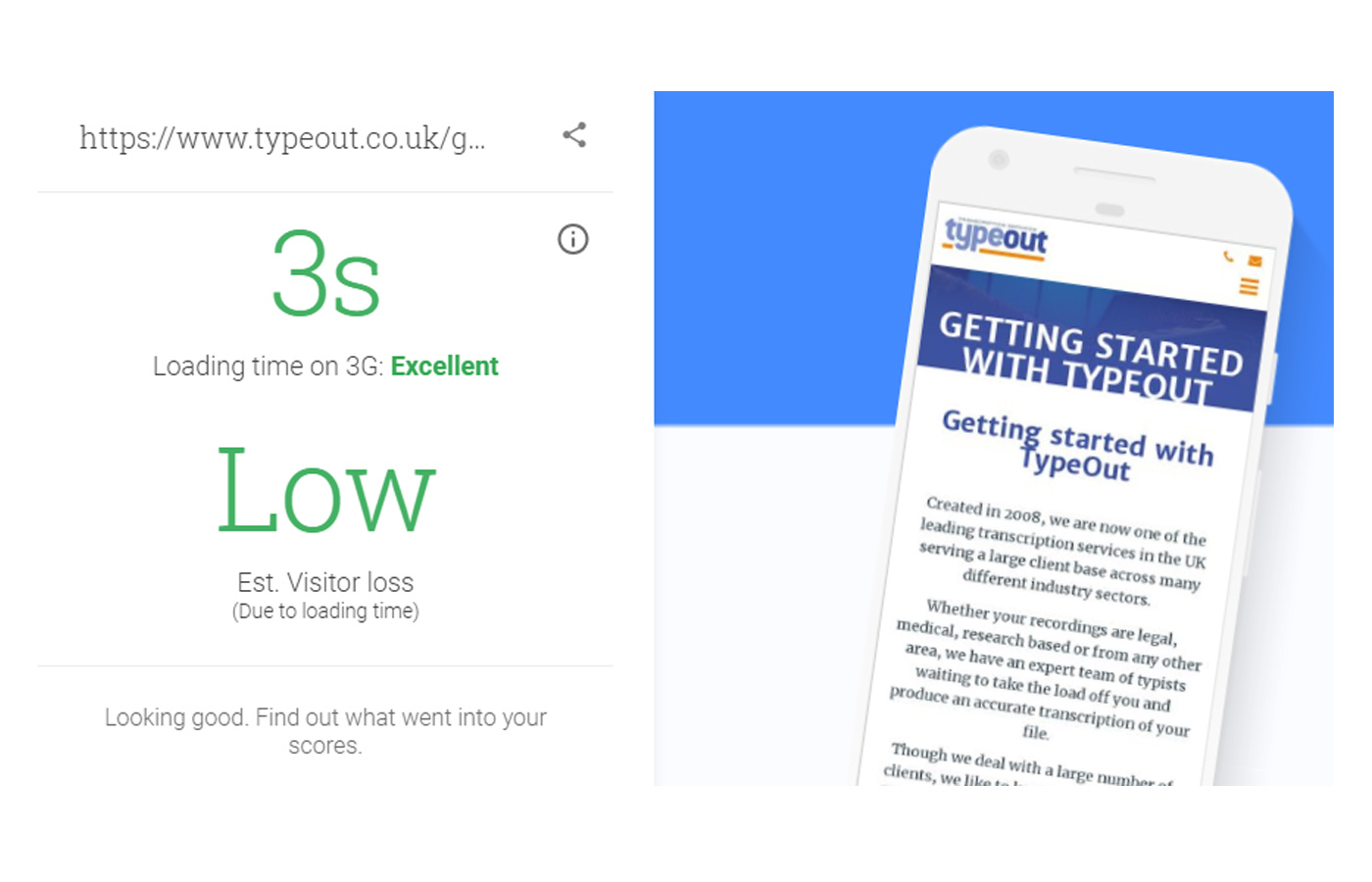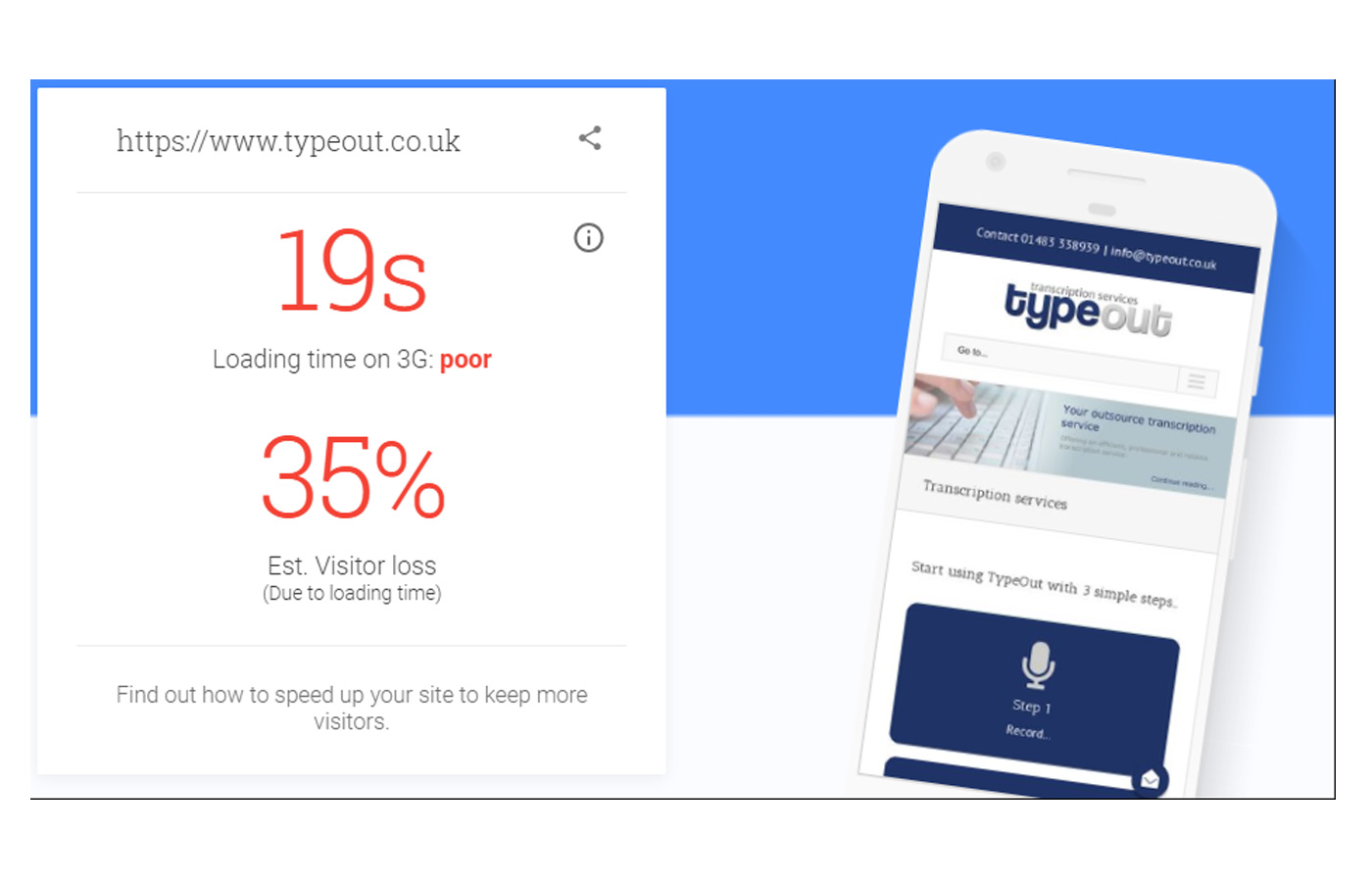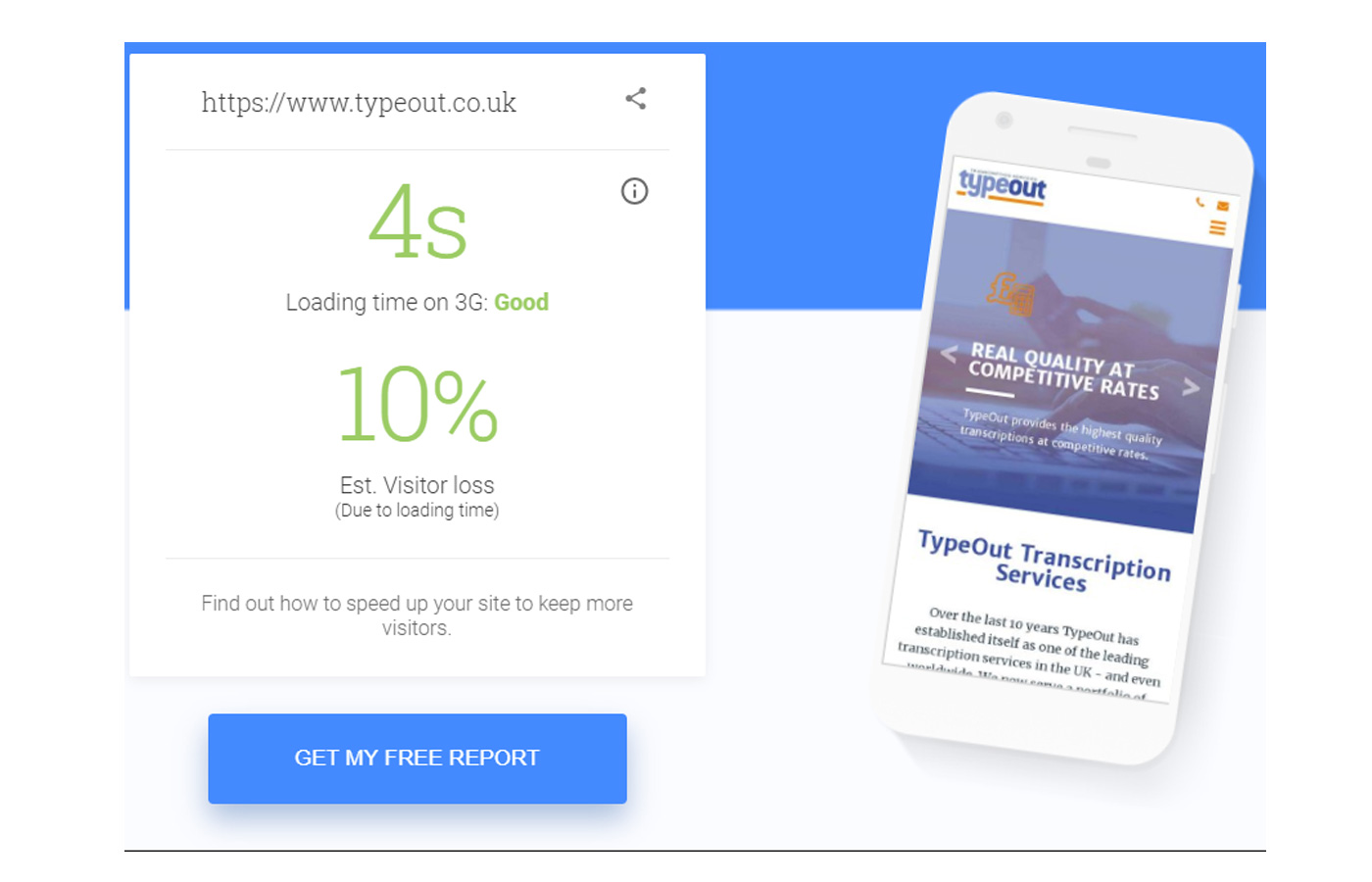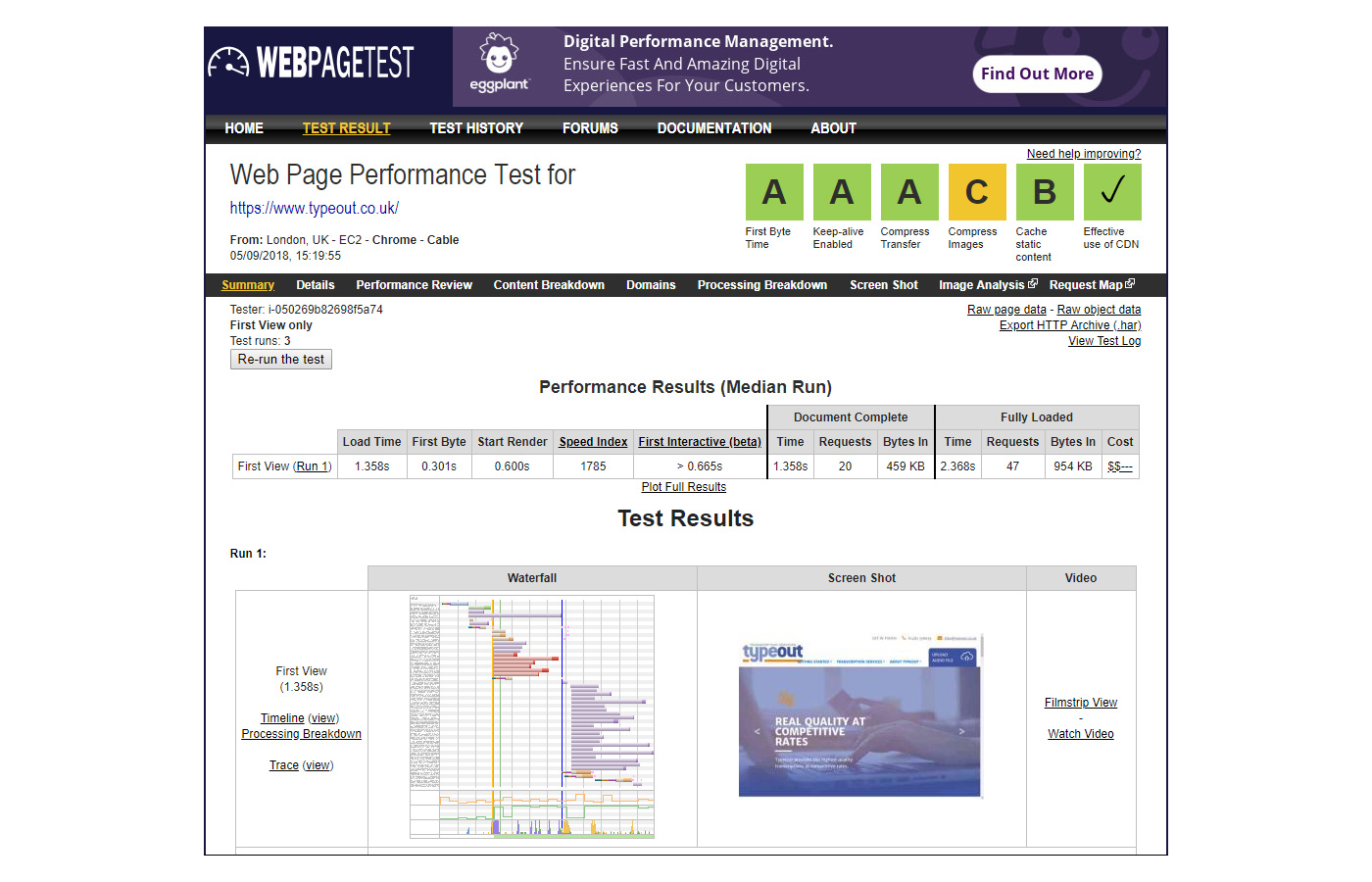WordPress is slow
The past five years has seen an explosion in small and medium sized businesses creating their websites in WordPress. It is much cheaper and faster to create than custom-built websites and does not require you to be a web developer with knowledge of how to code. WordPress enables you to get up and running quickly and lets you do a pretty good job.
Although websites that use WordPress seem more cost effective, they may no longer be such a great option. Google now takes web page loading speeds into account as part of its ranking algorithm, especially on mobile-based searches.
WordPress websites tend to have underlying pitfalls related to it’s ‘out-of-the-box’ nature, and while this was fine for a long time, recent accounts of changes to Google Search, indicate that site speed, how fast a web page loads, is an important factor for device compatibility and user experience.

We have seen an increase this year in company’s enquiring about the speed of their WordPress websites, many of these company’s are quite web savvy and have done their research and completed all the standard optimisation stuff like image optimisation and using CDN. But they have hit a block. They have used tools to analyse their sites and have fixed all the ‘issues’ highlighted, they have already upgraded their hosting, but still their site is slow.
They have hit a technical ceiling and believe this is starting to have an impact on their web page rankings.
Why WordPress can be slow
Originally, WordPress was built as a blogging platform where you could post blogs and share content easily via social media. As the off-the-shelf platform grew, a number of products to add extra functionality were introduced within WordPress in the form of plugins. Although plugins come with the benefit of easily adding functionality and abilities to a website, we have found they can significantly impact page loading speeds, causing WordPress websites to perform significantly slower than other custom-built sites. Plugins are also responsible for many previously reported hacks.
Another factor that can contribute to slowing a web page down is the hosting service keeping it online. A hosting system with a fast loading speed will require you to spend more money, but speed is so important nowadays that Googles predicts huge drop-off rates for websites taking longer than three seconds to load on a mobile.
Heavy, badly optimised images is also a common factor that tends to create problems for page loading speeds.
Other underlying issues with off the shelf websites
Dependence of themes create a lack of uniqueness in design and layout. Company’s are typically forced to trade-off their brand identity and ultimately fit the business to the site, not the site to the business.
Often a theme will be used thousands of times, therefore the websites will look the same as each other. It doesn’t allow you to stand out as oppose to a fully bespoke website with a unique design.
A custom-built website is coded by a skilled developer means that you don’t have to go through the hassle of tweaking someone else’s coding to bend it to your will. You get what you want, how you want it.
Another key disadvantage is that WordPress frequently releases new updates, meaning that you will need to keep up with changes or risk security issues. Keeping on top of updates takes up your time and money. Functionality can break or go offline when a site is patched, especially if it uses many plugins. These are hidden costs of out-of-the-box website.
Bespoke websites are fast
One company that was concerned about the age of their website contacted us for advice. We analysed their site health including site speed and many other ranking factors. We found that the site was performing very slowly.
This example shows a significantly slow loading speed of 19 seconds on 3G. Google highlights an estimated 35% visitor loss because of this. A third of its traffic is at risk of dropping-out before the page loads. A disaster!

This follow-up test shows the same client, but with a custom website built by Digital Potion. It shows a significantly faster page loading time than the previous WordPress website, highlighting some key differences between them.

The new site is also far easier to use, has a more impressive visual design and provides more functionality. The new website is much better, does more and has a vastly superior loading time.
How can bespoke be so fast and WordPress so slow?
Why is bespoke so fast? In this example, the key issues of the WordPress site were the use of plug-ins and the overall code-bloat of the application.
The website’s ‘time to first byte’ (TTFB) is a key indicator of page load performance as any delay impacts the initial user experience. TTFB is a good indication of the responsiveness of a webserver, while it responds to the page request and produces the html needed for the browser to build the page.
In our tests, TTFB jumped from over 3 seconds on the WordPress site to 0.3 seconds on the re-launched bespoke built website. In web-terms, that’s like a race between a bicycle and a Ferrari.
Most of this of this time saving is down to the different way the bespoke application works compared to WordPress, and the number of initial http requests in the bespoke site is reduced to a third of the WordPress site. This means the server and browser both need to do a lot more work before the page can be loaded.
In another speed analysis test using WebPageTest.org, a free service used to test website loading speed on desktop browsers, we get a similar result. The test results give us an in-depth overview of the web page loading performance on desktop, recording over 10 seconds for the complete page-load. The results for the new website are much more positive on all the tested speed factors. The full loading speed on desktop is also much faster, loading in less than 2.5 seconds.

Investing in your website
If you are a big fan of WordPress you can still build a bespoke website and configure WordPress as your editing / publishing interface. This would be a bespoke site because you are not depending on plugins and theme templates. There are plenty of bespoke sites using WordPress this way and this post is not anti-WordPress.
We mean to highlight tangible examples of how cost is not always so clear-cut, and how investing properly in your website can create a better experience for your users, including Google.
Google is reported to use page loading speeds as an important ranking factor now. Mobile speeds are important because the devices are less-capable, network bandwidth is not comparable to home or office broadband and mobile search is on the rise. If your site is not fast on any device, you may be missing out.





